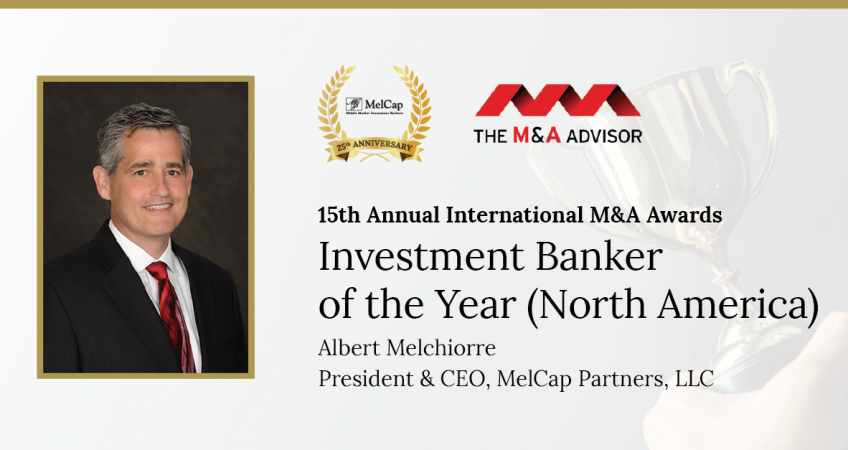Reshoring is leading to new opportunities in industrial M&A. Learn how to take advantage of this new trend.


Reshoring is leading to new opportunities in industrial M&A. Learn how to take advantage of this new trend.

MelCap was honored to receive two prestigious awards at the Cascade Capital Business Growth Awards Program. Read more about the event here.

MelCap President and CEO Al Melchiorre was honored to receive the Investment Banker of the Year Award from The M&A Advisor. Learn more.

Cross border transactions can be very advantageous, but only if you have an experienced M&A advisor by your side.

Explore the top 2024 M&A market industries that are seeing the most activity across volumes and values — and why.

MelCap was honored with two awards at the Global M&A Network Atlas Awards. Learn more here:

Navigating distressed M&A deals requires careful planning. Learn what you as a leader should consider before entering a deal.

MelCap Partners was recently recognized by Globalscope Partners as its Spring 2024 Most Active Member. Learn more here.

There’s more to the deal execution process than research and analysis. There’s a people component as well. Learn more here.

Learn the history of MelCap Partners and how promoting relationships in all that we do led to our growth over the past 25 years.